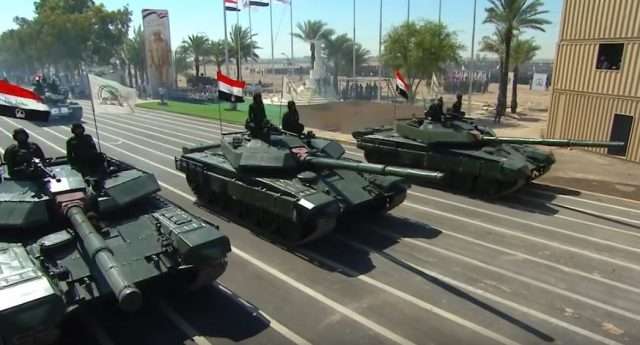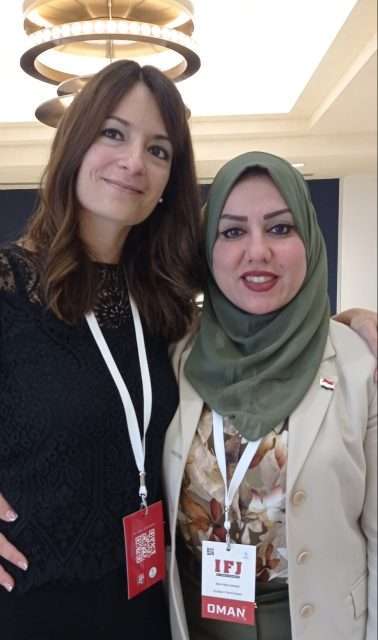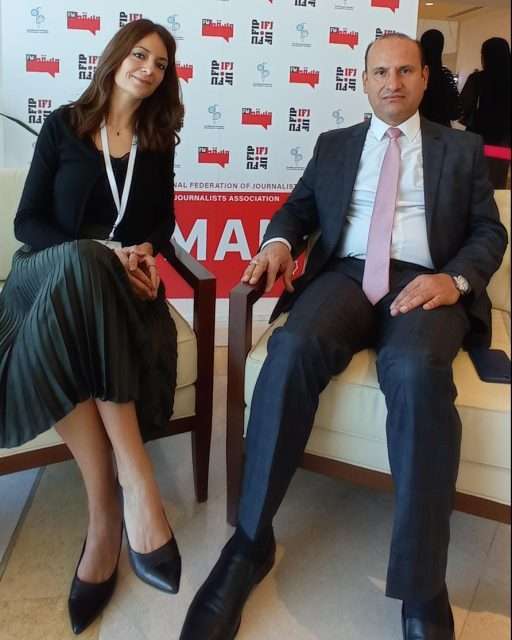
Geopolitical Report ISSN 2785-2598 Volume 20 Issue 3
Author: Silvia Boltuc
Since 2003, the situation in Iraq has undergone a significant change, and the country has had to face a process of modernisation and democratisation combined with the fight against the various local terrorist organisations, primarily the Islamic State, which have undermined the local stability and represented a threat to the security of the Iraqi people.
Last October 2021, early elections were held due to the anti-government protests that had developed in the country, especially in the capital Baghdad and in strategic cities such as Nasiriyah, Karbala, and Basra.[1] If the internal political situation of the country is still in progress, the Islamic State represents a constant problem for the local security due to the activities of jihadist fighters focused mainly on the provinces of Kirkuk, Salaheddin and Diyala through violent attacks and improvised explosive devices (IEDs) explosion against security forces personnel, sabotage of electrical system structures, fires of agricultural territories, kidnappings and extortion.
During the 31st World Congress of the International Federation of Journalists (IFJ), which began on May 31st, 2022, in the capital of Oman, Muscat,[2] we met with Ban Alkabran, Member of the Council of the Journalists’ Union in Iraq and Head of the Issue of Gender Equality to discuss with her the current Iraqi security situation. Regarding journalists’ security situation in the Middle Eastern country, Ban Alkabran stated that:
“In general, the journalist lives a dangerous situation considering that his job is telling the truth. The most important aspect regarding Iraq is that currently there are no journalists arrested in the country, thanks to the work of the journalists’ union that I represent at this conference. Our organisation gathers more than 20 thousand registered journalists, of which more than 4 thousand are women, and since 2003 the Iraqi press has opened up to the world.”
Considering the current situation in Ukraine and the impact that the conflict has on a regional and international arena, primarily with the problem related to food and energy supply,[3] Alkabran emphasised that
“This conflict has had significant consequences on all the economies of the world with an increase in prices that has involved not only Iraq but the entire international community. Given our past and present history, we do not like wars in Iraq and therefore do not want to see other people oppressed. In its fight against terrorism, Iraq has been a shield for the defence of the entire Arab nation. The problem of gas and energy supply primarily affects the poorest population. So, this problem should be addressed internationally. In Iraq, as in other parts of the world, there has been a rise in food prices while wages have remained unchanged and, in various situations, at a low level that does not guarantee stability and economic security. “

Dr Hassan Al-Boudi, Secretary-General of the Journalists’ Union of Iraq, analysed with us political and security issues in the country, the local democratic process and the media situation. He said that:
“Since 2003, the situation in the Middle Eastern country has improved thanks to a new political system that has opened up to the rest of the world and also to other peoples. We have managed to remove all the obstacles imposed by the old regime of Saddam Hussein, such as restrictions on the press and political activity and also on the activity of civil society. Today in the new Iraq, the doors are open to international organisations and international civil societies, and there is considerable space for freedom of the press and expression. Every journalist, as well as every Iraqi citizen, can freely express their judgment on the work of the country’s leaders and politicians, a completely different situation compared to the one before 2003 when there were only two or three local and satellite channels linked to the regime. After 2003, Article 38 of the Constitution[4] expressly declared freedom of expression, regulated the press and peaceful demonstrations, and allowed every Iraqi citizen to find a press organ or create a radio, television and satellite channel. There are currently more than 50 television stations, dozens of newspapers, and many radio stations and news agencies in Iraq. All these data show a positive signal for the Iraqi press.”
Iraq has been a bulwark in the fight against terrorism, especially against the Islamic State that continues to be present in the country.[5] Speaking about local security, Hassan al-Baoudi said that:
“Iraq has defended the whole world against terrorism by being at the forefront of fighting the different terrorist organisations that wanted to lead people to obscurantism. The Iraqi people have shed their blood in the fight against terrorism.”
Talking about Baghdad’s Government and the political situation following the recent elections, al-Baoudi specified that:
“The recent Iraqi elections were early elections wanted by the Iraqi people because the need was felt. We are in a phase of building the Iraqi government and the country, and, as in all democracies, these are standard processes. The recent elections are the democratic and correct methods to form a national coalition government. Indeed, democracy in Iraq will be consolidated and will bear the desired fruits since there is no future solution for Iraq that does not include widespread consensus and democratic mechanisms.”

Sources
[1] Al Jazeera (2022) Iraq announces final results of October parliament election. Link: https://www.aljazeera.com/news/2021/11/30/iraq-announces-final-results-of-the-october-legislative-election.
[2] SpecialEurasia (2022) SpecialEurasia attends the 31st World Congress of the International Federation of Journalists in Oman. Link: https://www.specialeurasia.com/2022/05/31/specialeurasia-ifj-media-oman/.
[3] Alex Sinelshikouv (2022) The Russian-Ukrainian conflict and its impact on food and regional security, Geopolitical Report ISSN 2785-2598, Vol. 17(7), SpecialEurasia. Link: https://www.specialeurasia.com/2022/03/25/ukrine-conflict-food-crisis/; Silvia Boltuc (2022) Geopolitical scenarios of the Persian Gulf in the aftermath of the Ukrainian crisis, Geopolitical Report ISSN 2785-2598, Vol. 17(6), SpecialEurasia. Link: https://www.specialeurasia.com/2022/03/21/persian-gulf-geopolitics/.
[4] Article 38 of the Iraqi Constitution declares: “The State shall guarantee in a way that does not violate public order and morality: First. Freedom of expression using all means.Second. Freedom of press, printing, advertisement, media and publication.Third. Freedom of assembly and peaceful demonstration, and this shall be regulated by law.”. Cf. C0nstitute Project (n.d.) Iraq’s Constitution of 2005, page 13. Link: https://www.constituteproject.org/constitution/Iraq_2005.pdf?lang=en.
[5] Daniele Garofalo (2022) Propaganda and operations of the Islamic State. Analysis of N. 339 of the weekly al-Naba. Geopolitical Report ISSN 2785-2598, Vol. 19(12), SpecialEurasia. Link: https://www.specialeurasia.com/2022/05/21/islamic-state-al-naba-339/; SpecialEurasia (2022) Islamic State’s new leader and future threats in Eurasia. Link: https://www.specialeurasia.com/2022/03/17/islamic-state-terrorism-eurasia/.



